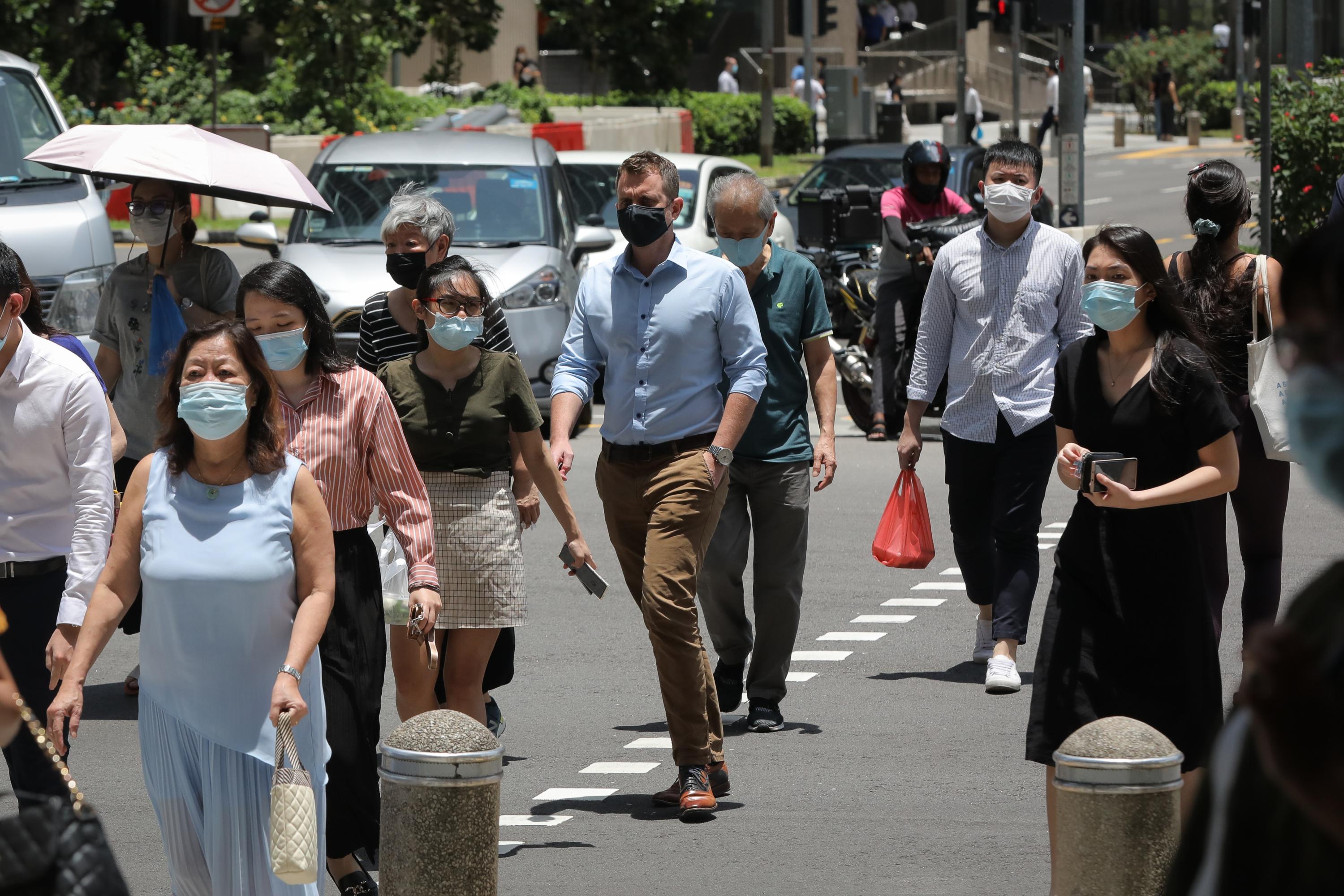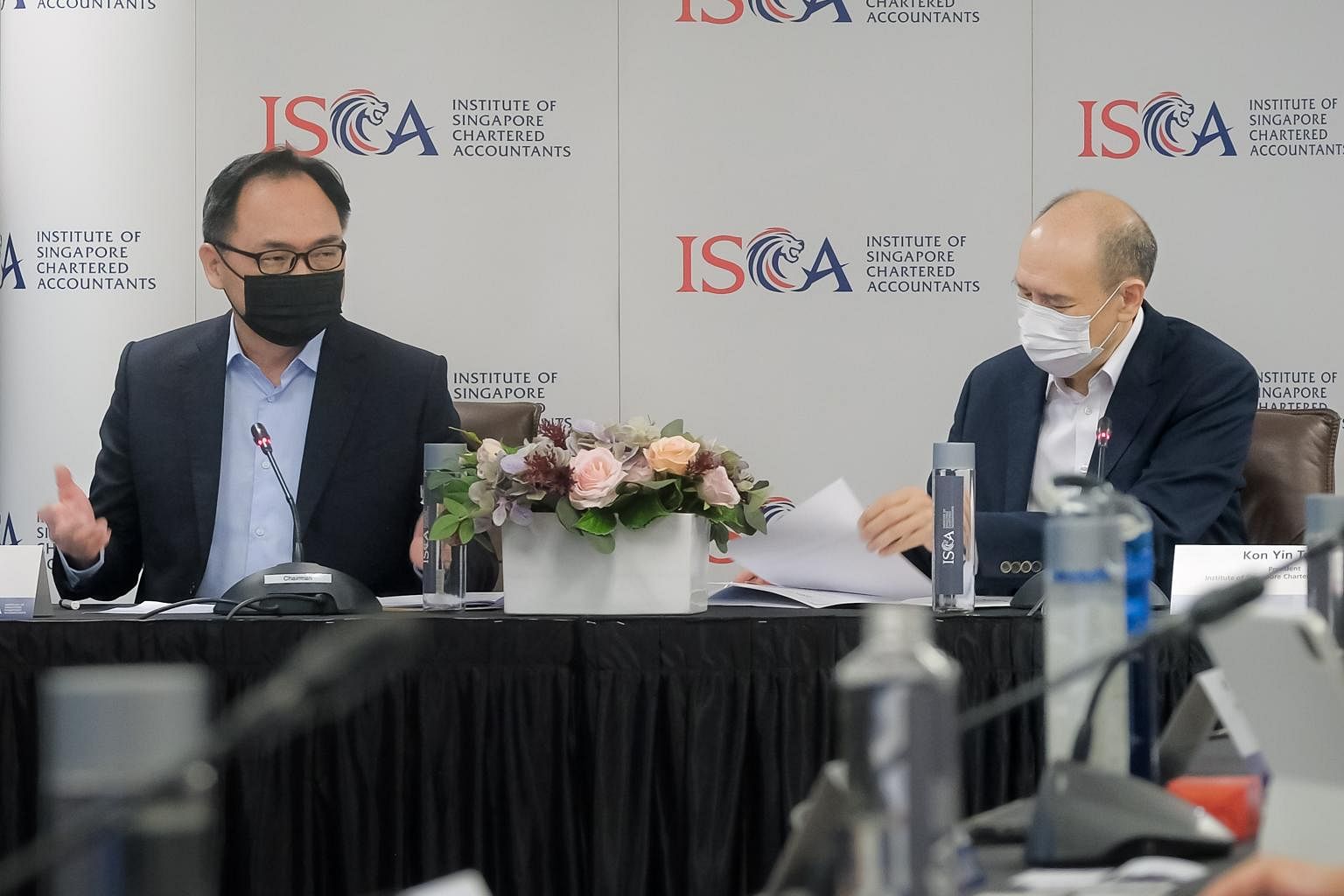Firms look to more support to address labour crunch, business transformation in Budget 2022
Sign up now: Get ST's newsletters delivered to your inbox

While firms are cautiously optimistic about the operating environment in 2022, concerns over rising costs and manpower challenges remain.
ST PHOTO: ONG WEE JIN
Follow topic:
SINGAPORE - Business and industry leaders are hoping for further support to address the labour and talent crunch as well as help in business transformation, in the upcoming Budget.
While firms are generally cautiously optimistic about the operating environment in 2022, concerns over rising costs and manpower challenges remain.
These sentiments were on Friday (Jan 14) shared at the 13th Institute of Singapore Chartered Accountants (ISCA) Pre-Budget round-table, which centred on the theme of recovery and refocusing on growth.
Key issues such as advancing digital transformation, the push towards sustainability, capability and talent development as well as driving internationalisation were discussed ahead of Budget 2022, which will be unveiled on Feb 18.
Mr Liang Eng Hwa, chairman of the Government Parliamentary Committee for Finance and Trade and Industry, noted in his opening speech at the round-table that in 2022, Singapore needs to look beyond managing the Covid-19 pandemic to prepare for structural shifts such as continued digitalisation, climate change and changes in the global order.
"We need to build a more vibrant and more resilient economy that can meet the challenges of the future and seize new opportunities," he said.
Singapore has to press on with its transformation efforts and support local small and medium-sized enterprises (SMEs), added Mr Liang, who co-chaired the round-table with ISCA president Kon Yin Tong.
At the session, which was held in a hybrid format - online and at ISCA House in Raffles Place - panellists highlighted the continued challenges of high labour demand and the lack of talent with required skills, which has been exacerbated by the Covid-19 pandemic and border restrictions.
SMEs are at a disadvantage when competing for IT talent, given that they are up against multinational corporations and large tech firms, noted Singapore Business Federation's (SBF) chief executive Lam Yi Young.
Singapore Manufacturing Federation secretary-general Lawrence Pek called for government funding to send young locals abroad on internships, where they can pick up new skills to meet the demands of emerging industry trends, such as in the areas of alternative protein and plant-based meat technologies.
Mr Ang Yuit, vice-president of the Association of Small and Medium Enterprises, suggested that talent development could be incentivised for SMEs by making it a criterion for government procurement projects.
At the same time, he raised concerns about the consolidation of some government contracts, which would make them more difficult for SMEs to compete for. Such projects can be integral to helping SMEs grow and eventually scale up to expand abroad, Mr Ang said.
Institute of Human Resource Professionals chief executive Mayank Parekh highlighted the importance of having both employers and employees on the same page about skills training, to ensure that staff are getting training in the skills that are required and prevent a possible skills mismatch.
He also pointed out that beyond technical skills, there needs to be support to help people adapt to the digital future, by picking up process skills such as project management.

Similarly, SGTech honorary treasurer Ivan Chang pointed to the need for holistic transformation, noting that Singapore has done a good job of getting people and businesses to adopt digitalisation through various policies and support schemes.
The next step would be to help firms identify ways in which they can transform their business models in line with industry trends and shifts, he said.
During the session, various business leaders spoke about the spectre of rising costs, given the increasing energy prices, logistics challenges amid global supply chain disruption, as well as the upcoming goods and services tax (GST) hike. With the tight labour market, manpower costs show no sign of abating either.
Continued government relief measures, such as through wage support, would be much welcome by sectors which remain weighed down by Covid-19 challenges, such as construction, retail, tourism and food and beverage, they said.
Panellists also discussed ways in which Singapore could look to drive its green transition and seize new opportunities.
Mr Sam Kok Weng, markets and financial services leader at PwC Singapore, suggested that the Government could look at sacrificing some tax revenue to build up the environmental, social and corporate governance sector, with the likes of tax relief for firms which buy carbon credits.
SBF's Mr Lam also stressed the need for support measures to help firms look beyond sustainability in their businesses to sustainability as a business, so that they are able to capture opportunities in the green economy.

